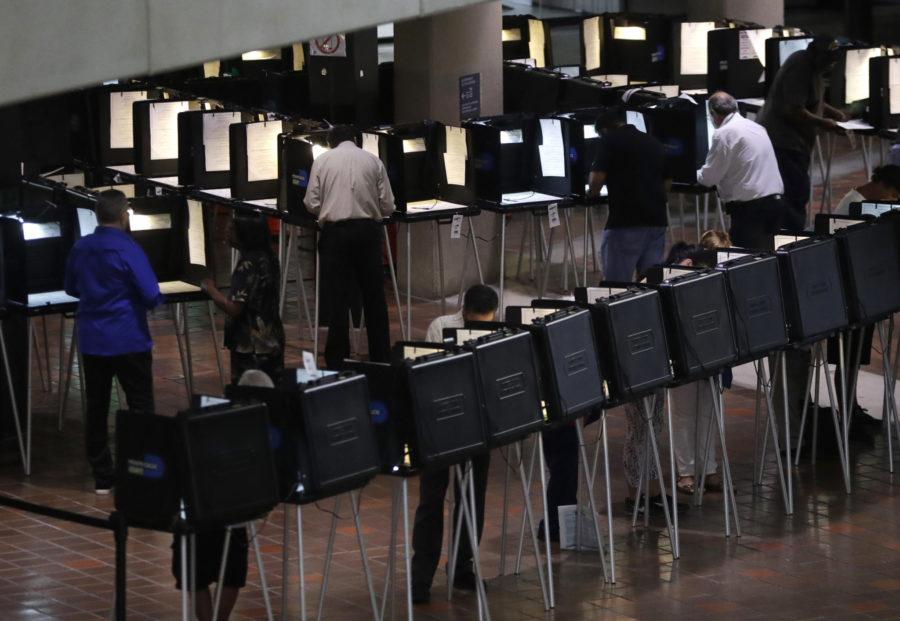By Emily Kois
Managing Editor
With elections a week away, understanding what amendments will be on the ballot can determine how a voter supports one side or the other.
This election marks history as it has the most constitutional amendments on the ballot since 1998 with 13 while the 1998 election had 12. During the 1998 election, the Florida Constitution Revision Commission met and put nine of these thirteen amendments on the ballot.
Being prepared prior to stepping into the voting booth is imperative so you must know what you are voting for. Ballot language can be difficult to understand; so here are what the thirteen amendments on the 2018 Florida ballot mean:
Amendment 1: Homestead Increase
This amendment would give Florida homeowners a tax break on property. This would apply to those who’s homestead property is worth $100,000 or more. If valued in this margin, you would get an additional $25,000 homestead exemption, raising the maximum exemption to $75,000.
However, this does not apply to school taxes.
Amendment 2: Non-residential property tax cap
Amendment One is beneficial to those who own a home, but Amendment Two impacts taxes for non-homeowners, such as renters. This amendment would make a temporary cap on their property taxes permanent.
Amendment 3: Gambling in Florida
This amendment would give voters the exclusive right to decide to authorize expansions of casino gambling in Florida. Currently, this decision rests with both the Legislature and the voters. Voting “yes” takes the power to expand casino gambling away from Legislature and gives it to voters.
Amendment 4: Felon Voting Rights
Amendment Four would automatically restore voting rights to felons once they’ve served their sentences. If passed, this amendment could impact 1.5 million people in Florida.
Amendment 5: Supermajority for Taxes
This amendment would require a two-thirds supermajority vote in the Legislature to impose, approve or raise state taxes and fees. Currently, only half is required in order to impose, approve or raise state taxes and fees.
Amendment 6: Crime victims’ rights
This amendment, modeled after Marsy’s Law in California, will give additional rights to crime victims and their families.
Amendment 7: First responder benefits and higher education
This amendment provides college tuition to survivors of first responders and military members who were killed on duty. To raise student fees, it would require a supermajority vote by university boards of trustees and the Board of Governors.
Amendment 8: Public schools
Due to the misleading wording of the amendment, this was removed from the ballot.
Amendment 9: Oil drilling and vaping
This amendment would prohibit drilling for gas and oil in state coastal waters and ban vaping and the use of electronic cigarettes in workplaces.
Amendment 10: Governmental structure
This amendment would require all charter-county governments to have elected constitutional officers. This would then require the state legislative session to start its annual session in January in even-numbered years. Also, it would create an Office of Domestic Security, a Counterterrorism in the Department of Law Enforcement and would revise the authority for the Department of Veterans’ Affairs.
Amendment 11: Property rights
This amendment would remove language that prohibits “aliens ineligible for citizenship” from owning property and wording approving high-speed rail system. It would make clear how a criminal statute does not affect the prosecution of any crime committed before the repeal.
Amendment 12: Lobbying ethics
This amendment would ban public officials from lobbying during their term and for six years following their term. It would also create standards that would prohibit current public officials from using their office for personal benefit.
Amendment 13: Greyhound racing
This amendment would end commercial dog (greyhound) racing at Florida tracks by Dec. 31, 2020.
Remember, any constitutional amendment requires at least a 60 percent vote in order to be approved. Happy voting!



























